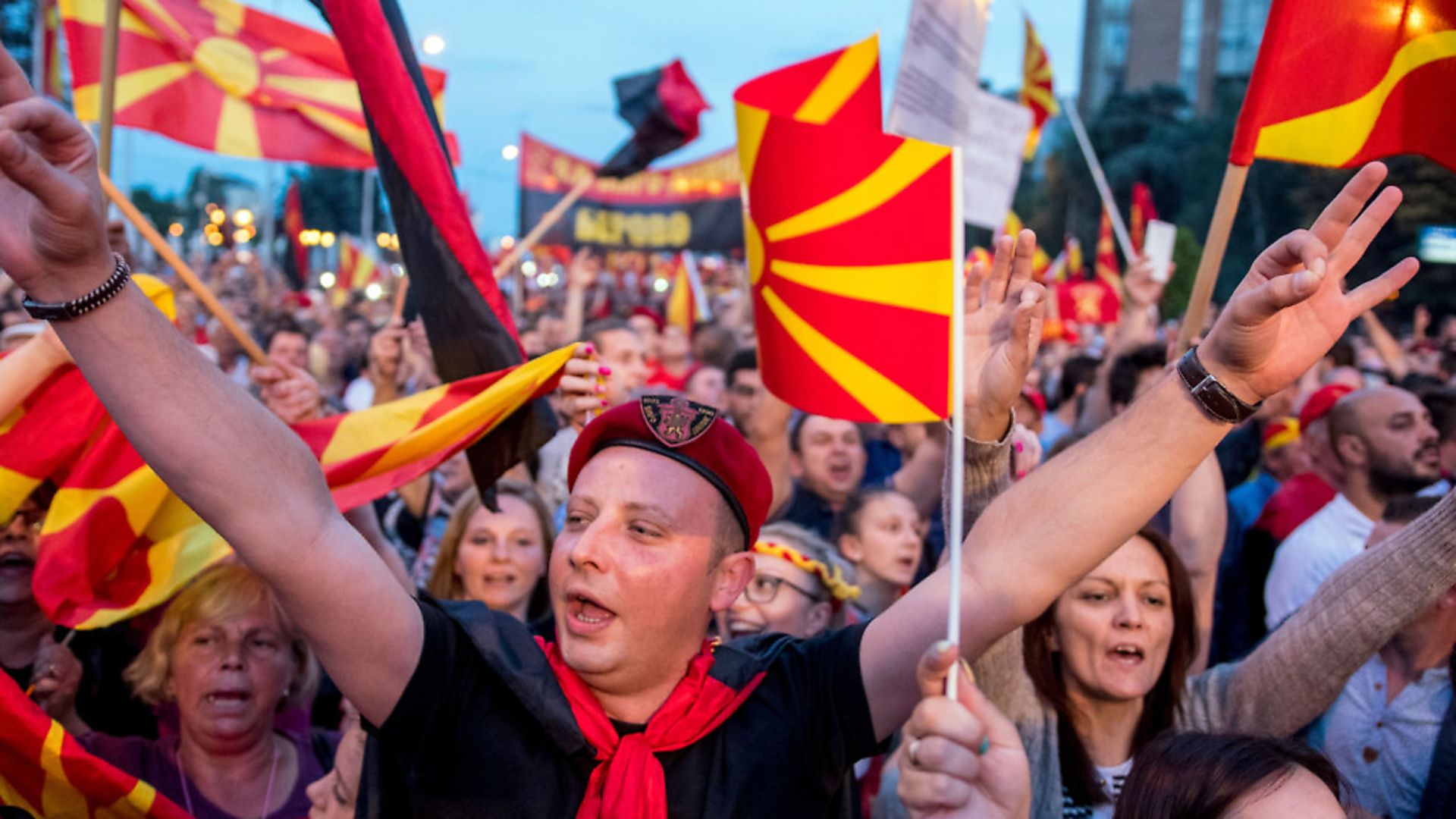
In the Western Balkans the EU can get back to basics – creating a safer, more prosperous region. PAUL KNOTT reports on its efforts in a historically combustible corner of the continent.
The European Union was formed in the aftermath of the Second World War to end the horrific cycle of war, dictatorship and economic collapse that consumed the first half of the 20th century. This founding purpose has been obscured lately by arcane debates over customs unions and currency crises.
Such amnesia within the longer-standing EU member states of Western Europe was perhaps inevitable. The generations with living memories of how much worse things can be are dying out. And the benefits of European peace, democracy and cooperation have been ingrained for long enough to be taken for granted by most people.
But this does not mean that the European torch has gone out. Rather, it has been passed on to another part of the continent.
The flame is now being kept alive by the Western Balkans nations currently outside the EU. These countries have the most searing recent experiences of the problems that originally impelled the Union’s creation. All have suffered the grim consequences of dictatorship, nihilistic nationalism and war.
Like Spain, Portugal, Greece and the Central European nations before them, the goal of European integration is inspiring the Western Balkan countries to build a better future for their people.
After years of corrupt, post-dictatorship administrations, Albania now has a progressive government that is creating a clean and fully-functioning democracy. Tiny Montenegro stood up against a Russian coup plot designed to derail its move to join NATO and, ultimately, the EU. Even Serbia, the source of many of the horrors surrounding the break-up of Yugoslavia in the 1990s, is heading in a more enlightened direction.
The current star of the show is Macedonia. Until recently, it was best known for the ugly, jingoistic monuments erected by the previous nationalist regime, violence between its Slav majority and Albanian minority and an esoteric dispute over its name with Greece. The latter issue has impeded Macedonia’s progress to EU and NATO membership ever since it won independence from Yugoslavia in 1991.
Prime Minister Zoran Zaev’s reformist government in Skopje has changed matters with remarkable speed during its first year in power.
Macedonia has dramatically improved its prickly relations with all of its neighbours, notably by solving the naming dispute with Greece (henceforth the country’s official name will be North Macedonia). Reforms to make the judiciary fully independent, end political direction of the police and guarantee media freedom are well underway. Transparency in making public sector appointments and awarding contracts is being greatly enhanced.
These measures will improve the economic climate and increase Macedonia’s attractiveness to investors. Zaev recently told New Eastern Europe magazine this is crucial for ensuring his people feel the benefits of reform. The changes will ‘create the jobs and opportunities to keep our young people in the country and grow our living standards’.
It matters to all of us that Zaev and his Balkan counterparts succeed because the nationalists are still lurking to drag the region back to the bad old days when its conflicts harmed the whole of Europe.
The good news is that the EU’s positive image in the Western Balkans helps. As Macedonia’s engaging and impressively dreadlocked culture minister Robert Alagjozovski explained to me at the recent ‘Europe With A View To The Future’ conference in Gdánsk, ‘the rosy view we have of the EU as a route to modernisation is actually a good thing. It drives reform and positive change’.
A recent paper by Hannes Swoboda and Maria Eleni Koppa of the European Council on Foreign Relations (ECFR) identifies much that the EU could do to support the region’s progress even before its nations qualify for full membership.
Their ideas include establishing a security union between the EU and the Balkan countries. As well as military cooperation, this union would tackle shared challenges such as organised crime, terrorism and people smuggling.
The EU’s Structural Funds could be extended to these candidate countries before membership, subject to their ongoing implementation of governance and rule of law reforms. The improvements to public services and infrastructure brought by these funds would be very clear to the people.
The funds would also advance regional economic development. Neighbours such as Greece, Romania and Bulgaria are among the EU member states with the weakest economies. They would particularly benefit from increasing the Western Balkans’ value as a market, in turn reducing their need for EU support. Boosting the whole area’s employment opportunities would have a positive impact on other issues creating tension in Europe, including immigration.
The EU should stop treating these aspiring member states as a problem to be managed, with people whose expectations need to be lowered, and start seeing them as the assets they are. As Minister Alagjozovski says, ‘our establishment of clean government, freedom of speech and rule of law is a success story for Europe’.
The EU needs all the success stories it can get right now. Embracing Macedonia and its neighbours would enable the EU to rediscover its original purpose and reinvigorate it with new enthusiasm.
The Western Balkans are the EU’s best opportunity to revive its glorious tradition of guiding European nations from war, dictatorship and destructive nationalism to peace, freedom and democracy. Let’s give our fellow Europeans the help they need to prepare for membership. Then welcome them in.
Paul Knott is a writer on international politics. He spent 20 years as a British diplomat, with postings to Romania, Dubai, Uzbekistan, Ukraine, Russia and the European Union in Brussels.









